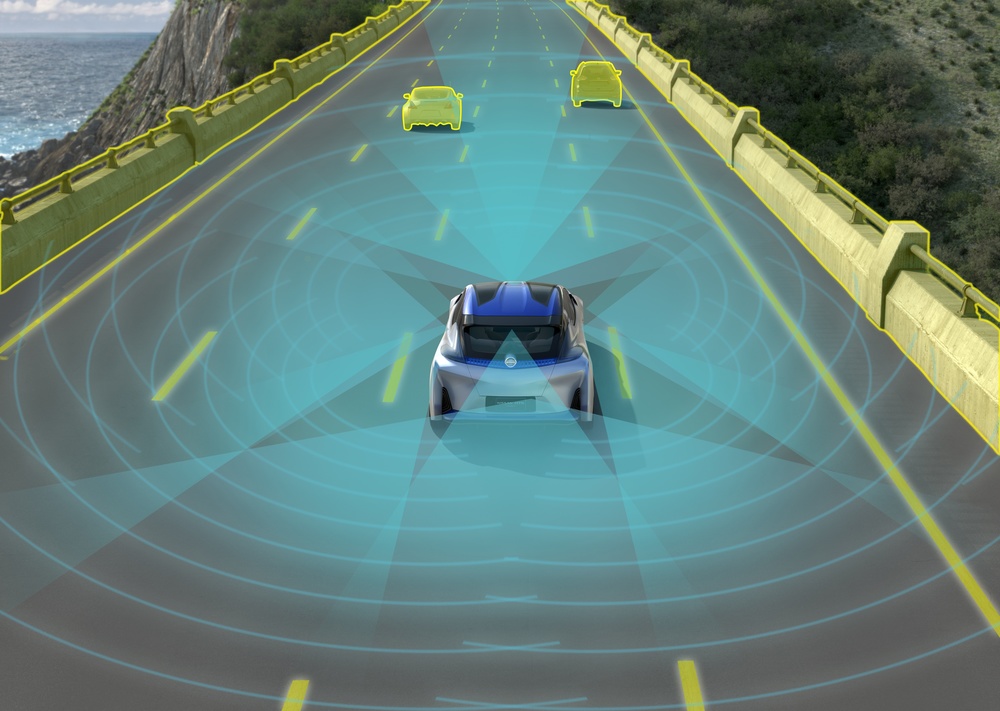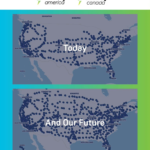Nissan-Renault is one of (er.. two of) the automobile companies working on autonomous drive. Nissan had previously announced the Zero Emissions Zero Fatalities pledge, and more recently showed off an autonomous vehicle prototype. The other day the Nissan-Renault Alliance laid out a roadmap for autonomous driving, and reminded us of where all their research centers are located and the quantity of research funded by the Alliance.
The Renault-Nissan Alliance will launch more than 10 vehicles with autonomous drive technology in the next four years. That’s between now and 2020. These cars will be sold in United States, Europe, Japan and China, and will be installed on mainstream, mass-market cars at affordable prices.
“Renault-Nissan Alliance is deeply committed to the twin goals of ‘zero emissions and zero fatalities,'” Renault-Nissan Alliance chairman and CEO Carlos Ghosn said at the Renault-Nissan Silicon Valley Research Center. “That’s why we are developing autonomous driving and connectivity for mass-market, mainstream vehicles on three continents.”
The timeline includes these milestones:
- The year 2016 will mark the debut of vehicles with “single-lane control,” a feature that allows cars to drive autonomously on highways, including in heavy, stop-and-go traffic.
- In 2018, Renault-Nissan will launch vehicles with “multiple-lane control,” which can autonomously negotiate hazards and change lanes during highway driving.
- And 2020 will see the launch of “intersection autonomy,” which can navigate city intersections and heavy urban traffic without driver intervention.
To support this, the Alliance will launch a new mobile app for remote interaction with ones car. It’s described thusly:
Later this year the Alliance will launch a new automotive app for mobile devices, which allows remote interaction with your car. Next year, it will launch the first “Alliance Multimedia System,” providing new multimedia and navigation features, as well as improved smartphone integration and wireless map updates. In 2018, the Alliance Connectivity & Internet of Things platform will support the new Virtual Personal Assistant feature for individual and business customers.
One effect of the Renault-Nissan Alliance is combined engineering R&D efforts. Engineers at Renault and Nissan work together as one team to reduce duplication in the development of next-generation technologies.
For autonomous driving, Alliance R&D has developed a “technology tool kit” with the components necessary for autonomous drive. Product teams from the Alliance companies are then able to select stuff from the tool kit to readily integrate the technology into specific cars.
- Is there enough Grid Capacity for Hydrogen Fuel Cell or Battery Electric cars? - April 23, 2023
- Is Tesla finagling to grab federal NEVI dollars for Supercharger network? - November 15, 2022
- Tesla announces the North American Charging Standard charging connector - November 11, 2022
- Lightning Motorcycles adopts Silicon battery, 5 minute charge time gives 135 miles range - November 9, 2022
- Tesla Autopilot under US Dept of Transportation scrutiny - June 13, 2022
- Spectacular CNG bus fire misrepresented as EV bus fire - April 21, 2022
- Moldova, Ukraine, Georgia, Russia, and the European Energy Crisis - December 21, 2021
- Li-Bridge leading the USA across lithium battery chasm - October 29, 2021
- USA increasing domestic lithium battery research and manufacturing - October 28, 2021
- Electrify America building USA/Canada-wide EV charging network - October 27, 2021













